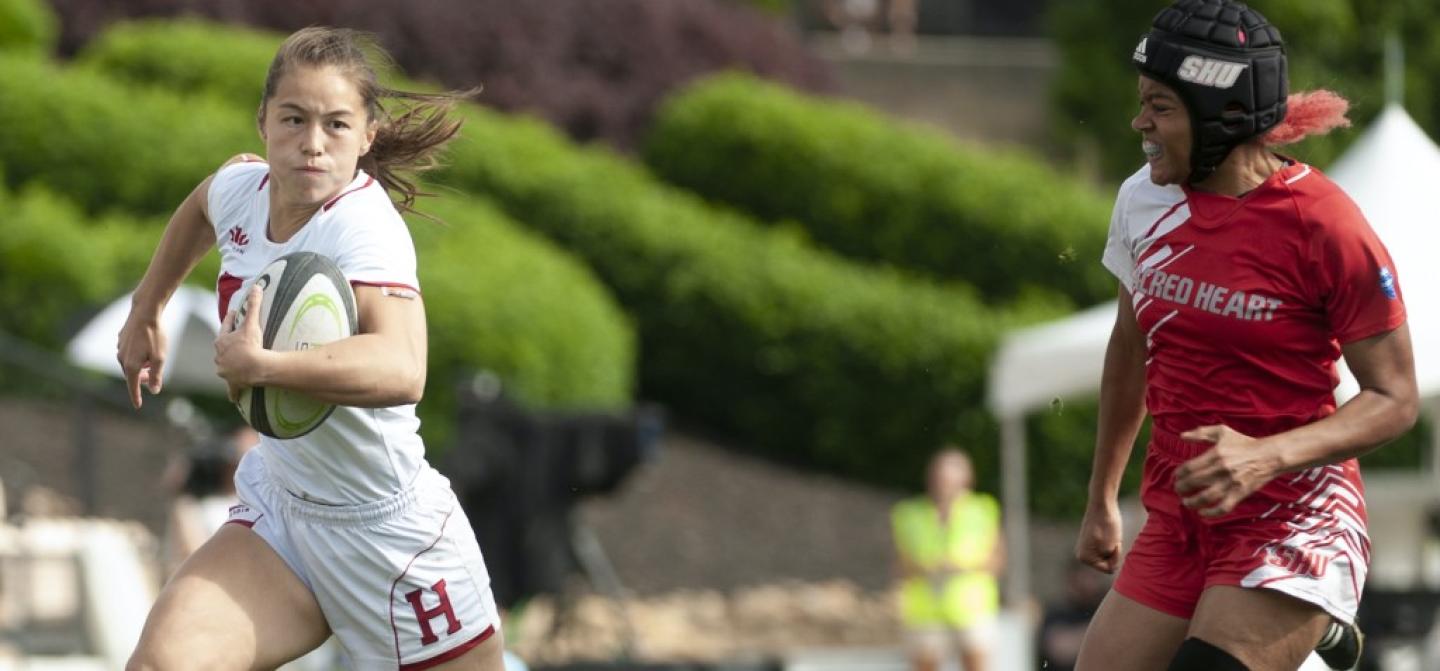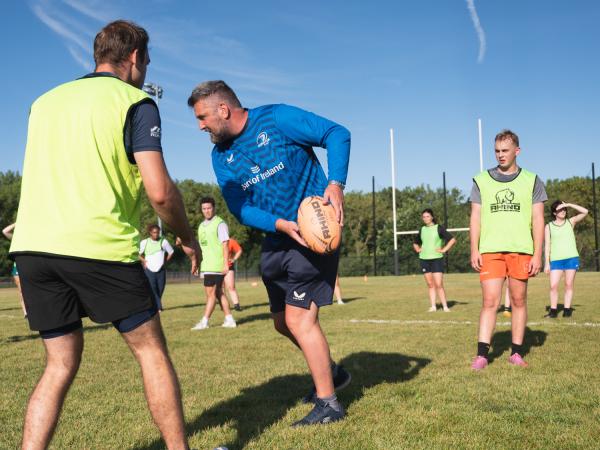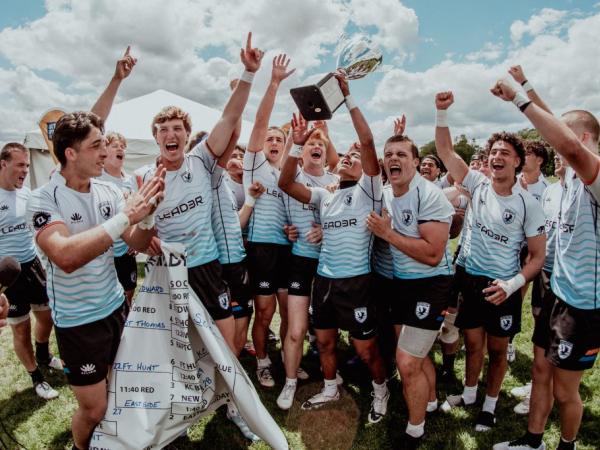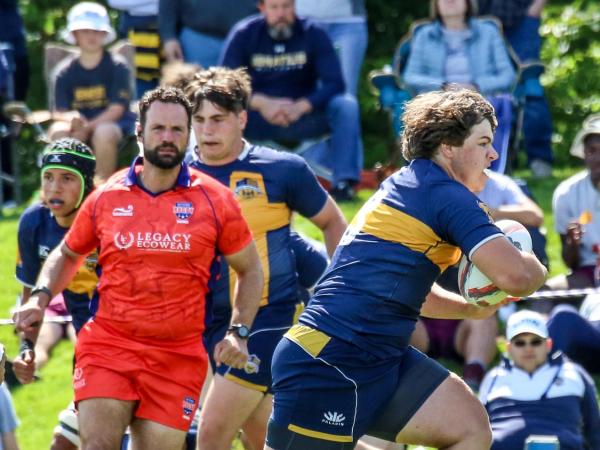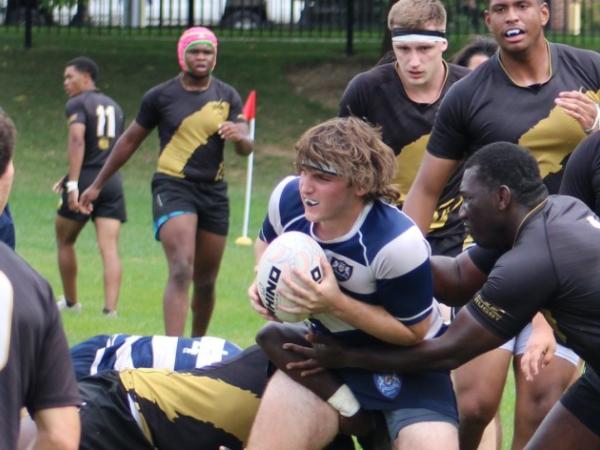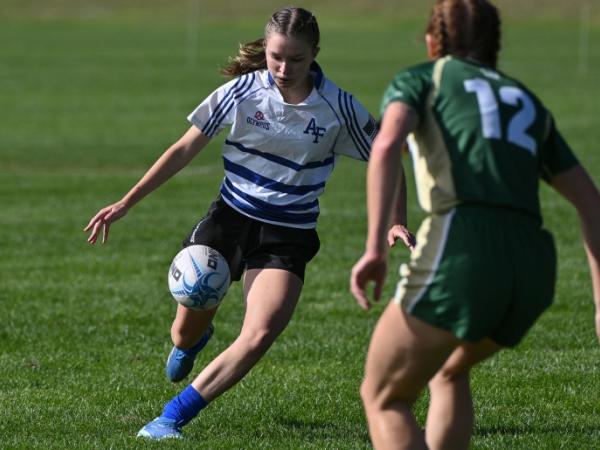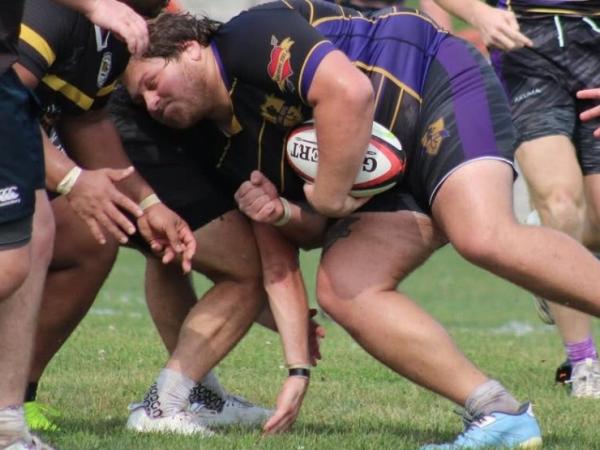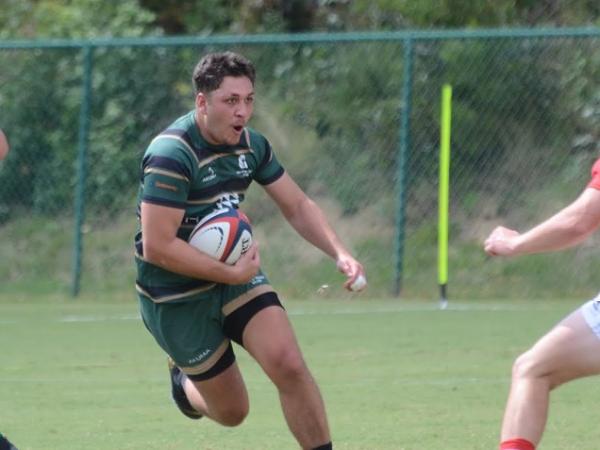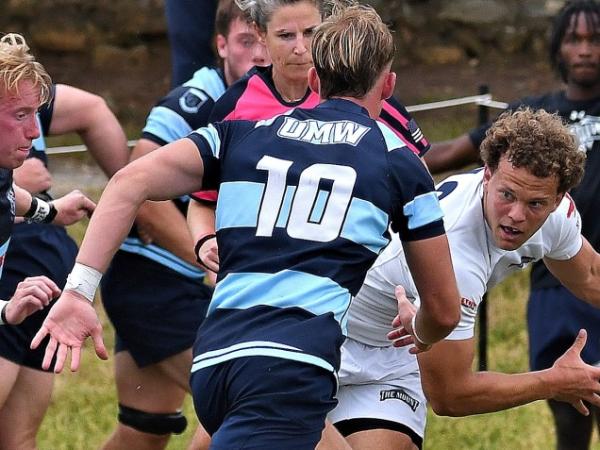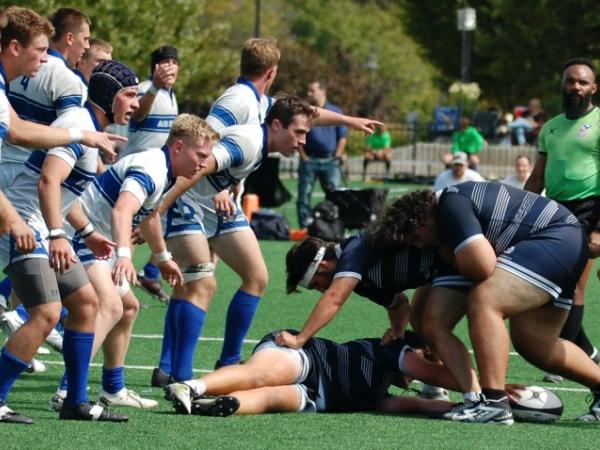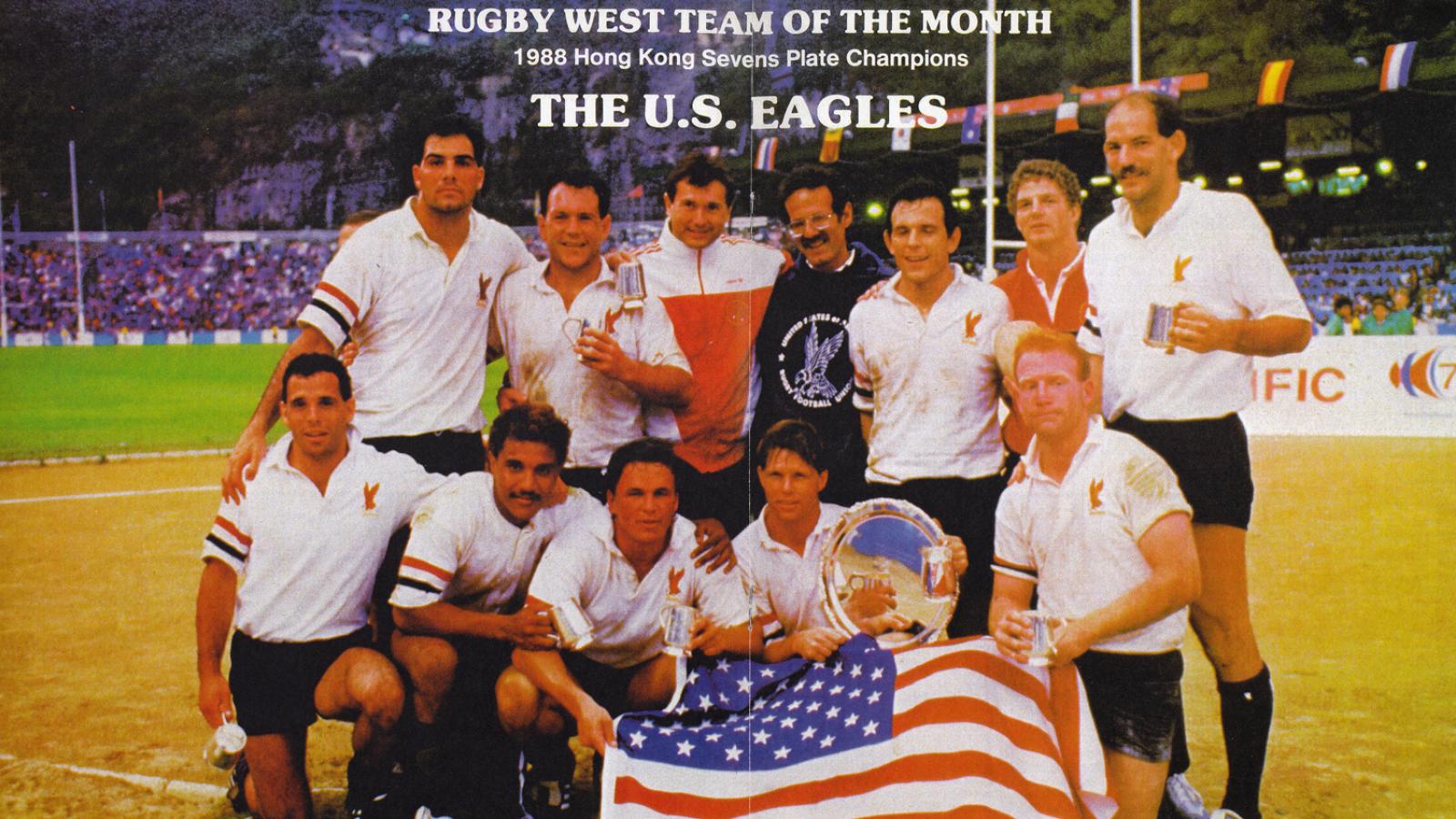Today is the 50th Anniversary of Title IX being signed into law.
The law essentially ensures equality of sports opportunities (or opportunities in other activities) in educational settings. Since the Title IX bill was signed into law by President Richard Nixon on June 23, 1972, the number of girls playing sports in high school has risen more than 1,000% (source Women’s Sports Foundation). The growth of girls in high school sports has outstripped that of boys by two-and-a-half times.
 In college, the percentage of college athletes being women has tripled since 1972.
In college, the percentage of college athletes being women has tripled since 1972.
Title IX, in short, has worked, and remains important.
But that doesn’t mean we’ve arrived.
The Work Continues on the Field
In the coming weeks we will look more closely at Title IX compliance and how many universities still fall short. We will talk about what that means for rugby, a high-participation, low-cost sport that seems a no-brainer pick for varsity status but is not yet a full NCAA championship sport.
And we will talk in more detail about what women student-athletes in college and parents in high school can, and should, do to further the Title IX cause.
A study by TitleIXSchools.com shows that about 90% of colleges are not in compliance of Title IX. They are failing at attaining proportional sports participation, and they are failing in terms of scholarship money.
But, according to this article by USA Today, much of the reason for that is because of hit-and-miss oversight. The NCAA does not enforce Title IX compliance. The Department of Education has Title IX enforcement ability, but the US Senate’s Commerce Committee oversees college sports. So who should hold colleges’ feet to the fire?





